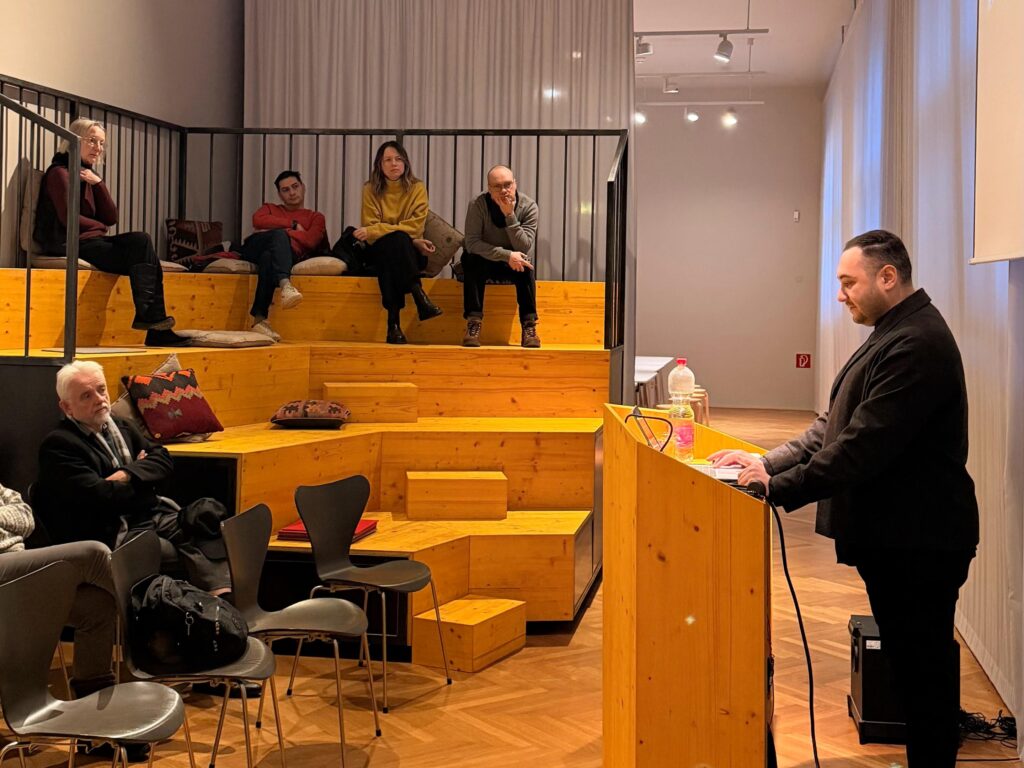Joint Statement by German Organizations listed as ‘Undesirable’ in Russia
Recently, it was announced that the German Society for Eastern European Studies (Deutsche Gesellschaft für Osteuropakunde), the Friedrich Ebert Foundation, the Lew Kopelew Forum, OWEN – Mobile Academy for Gender Democracy and Peace Promotion (OWEN – Mobile Akademie für Geschlechterdemokratie und Friedensförderung), and the XZ Foundation have been added to the list of ‘undesirable’ organizations in Russia. Among the more than 145 listed organizations, there are now over 20 affected organizations from Germany. They operate in the fields of politics, civil society, and academia, covering all central areas of societal activity.
Being classified as undesirable in Russia is equivalent to a ban. Russian citizens commit a crime if they collaborate with us. This also applies to cooperation outside of Russia. Any collaboration, whether in events, research projects, or publications, can be punished with fines and, in case of repeated offenses, with imprisonment of up to six years.
The consequences for the listed organizations vary greatly depending on the extent of their activities in Russia. However, we agree that it is not only about preventing or hindering our work. Above all, the classifications serve as a pretext for repression aimed at intimidating the Russian population. And it is about influencing the German public.
Against the backdrop of Russian presidential elections that were neither free, secret, nor fair, we believe it is necessary to draw attention to these aspects with emphasis. Vladimir Putin’s position of power was further consolidated by the “elections,” and there is a fear that domestic repression will tighten further and new measures directed against the West will be taken.
We would like to emphasize the following points:
The threat of draconian penalties aims to deter Russian citizens from collaborating with Western institutions. This is not explicitly directed at regime-critical individuals but at society as a whole. The consequences of being listed primarily affect Russian citizens who work for or with an ‘organization’ declared an ‘undesirable organization’.
The regime in Moscow aims to disentangle Russian society from Western societies to a new level. Russian society is to be isolated, and all contacts with Western societies are to be severed. The basis for any cooperation is gradually being destroyed.
In this way, the regime in Moscow also aims to secure its interpretation of the situation in the country. Critical expressions and objective scientific analyses are to be prevented. This is equally an attack on freedom of opinion and science.
The listing of ‘undesirable organizations’ also targets the German public. By framing German institutions as adversaries, fears and uncertainties in society are to be stirred up. This is part of the information war against Germany. Moscow is aggressively trying to influence public opinion in Germany, spread disinformation, and thus divide society. Polarizations reinforced by the classification of institutions as ‘undesirable’ are used as a strategic resource.
From this, we draw the following conclusions:
We must not leave it to Russia to determine what measures are necessary against the regime in Russia or what support for Ukraine is legitimate. We should not be intimidated by those who use every outrage from Russia as evidence that Germany’s engagement is too escalatory or far-reaching. We must discuss political decisions sovereignly and objectively.
Being classified as ‘undesirable organizations’ in Russia does not prevent us from continuing to advocate for a democratic and free society in Russia. We do this with due caution to protect our Russian partners.
Signing Organizations:
Akademisches Netzwerk Osteuropa, akno e.V.
for the board and the SCIENCE AT RISK Emergency Office Dr. Philipp Christoph Schmädeke, Stephan Kaschner, Dr. Sven Jaros
Austausch e.V.
Coopera e.V.
Deutsche Gesellschaft für Osteuropakunde e.V. (DGO)
Europäischer Austausch
Stefanie Schiffer, Director
Heinrich-Böll-Stiftung
Jan Phillip Albrecht
XZ Foundation
Zentrum für Osteuropa- und internationale Studien (ZoiS)
Zentrum Liberale Moderne (LibMod)



